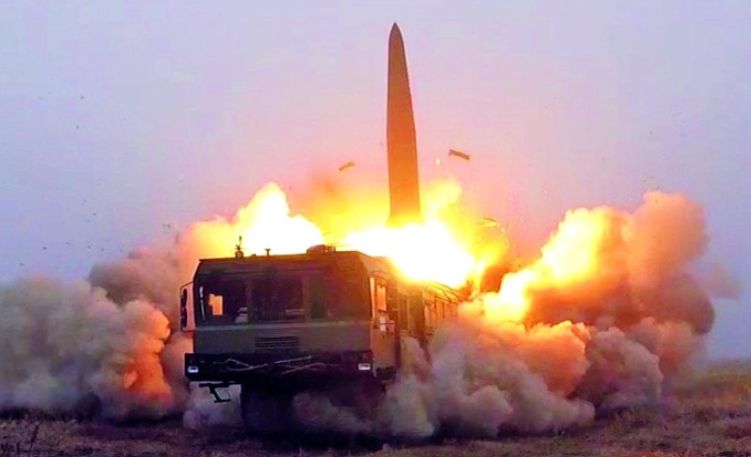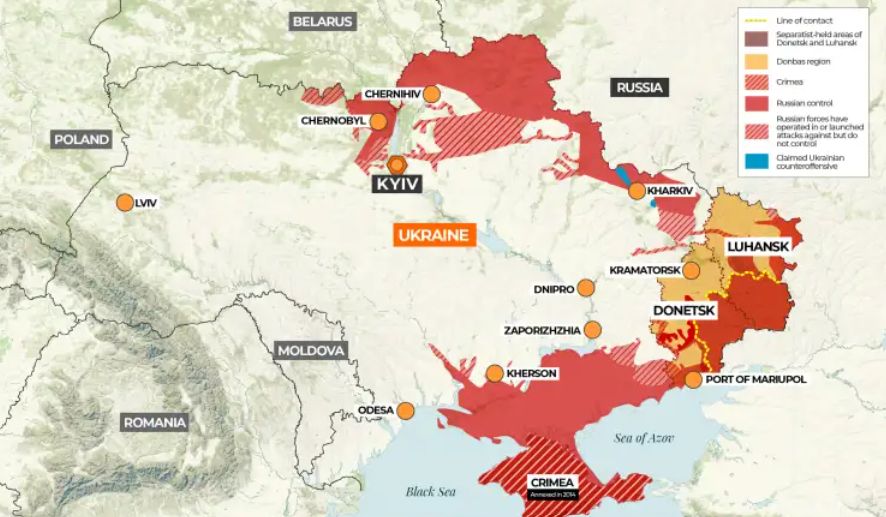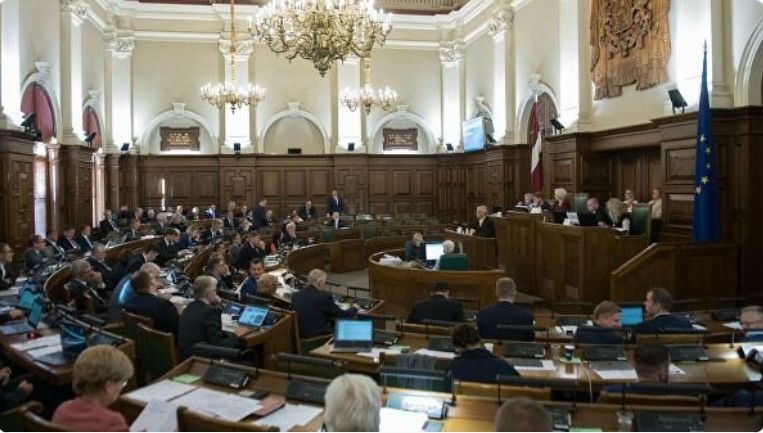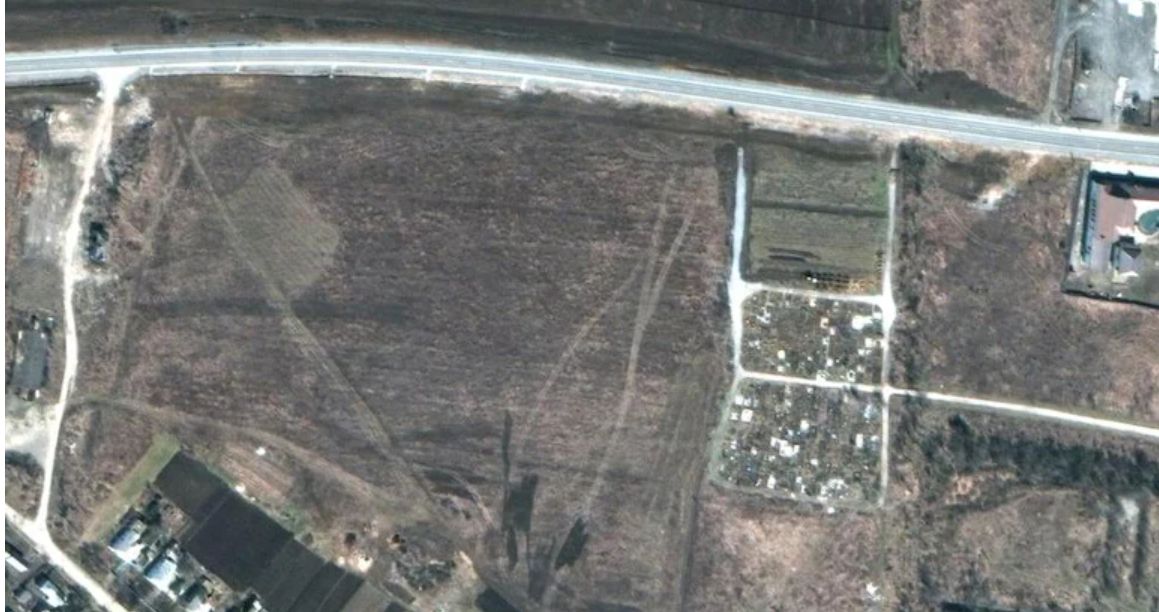By Eric Vandenbroeck and co-workers
Russia today successfully test-fired the Sarmat
intercontinental ballistic missile, a new addition to its nuclear
arsenal. Russia tests nuclear-capable missiles in warning to
enemies President Vladimir Putin boasts of a new intercontinental
ballistic weapon that would give Russia's enemies something to think
about.

As Andrew Weiss recently stated the prospect of peace in
Ukraine is, a very dim one at this point. There's a horrible humanitarian tragedy
unfolding across Ukraine, and then there's a remarkable story of resistance,
both from the Ukrainian military and from average people who've taken up arms
to defend their country. I don't see any Ukrainian leader being able to sit at
a table across from Vladimir Putin, offer up significant chunks of their
territory, give up parts of their sovereignty, and, as Putin wants, basically
give away their ability to defend themselves from such an invasion in the
future.
For a millennium, Russia has been an autocracy with power
concentrated in the hands of an all-powerful leader or leadership group. The strong
centralized rule has held together a disparate, centripetal empire and
preserved it from the predations of powerful foreign enemies. Sporadic attempts
at democracy have ended in a return to the same default mode of governance; the
cause of the state has taken priority over the interests of the individual.
As Russia and Ukraine prepare for what could be the biggest tank battle
in Europe since World War II, the future of Vladimir Putin’s war remains
impossible to predict. Large-scale tank and artillery engagements in the flat
open terrain of eastern Ukraine may favor Moscow, and the sheer weight of
Russia’s military machine could force territorial gains, but other outcomes are
possible. Ukrainian courage, tactical brilliance, and access to Western arms and
equipment could produce another string of humiliating setbacks for Russia.
Putin’s strategy is to prevent the former Soviet Union countries from
meeting the NATO membership criteria of having territorial integrity and being
free of an ongoing conflict. Consistent with this strategy, Putin has chopped
off parts of Georgia, Abkhazia, and South Ossetia into separate autonomous
states, annexed Ukrainian Crimea, and since 2014 has been conducting
destabilization operations through separatist proxies in eastern Ukraine. The
conduct of this policy is brutal and deadly, with little regard
for suffering.
Sadly, even if Washington did extend an olive branch to Moscow, the
gesture would not lead to a long-term improvement in the relationship. Friends
and friendship are not part of Russia’s lexicon when it comes to geopolitics.
To put Russia on the couch for a moment, the fear-filled history that shaped
Russia’s national psyche means Moscow cannot have real friends in the way that
America feels a true kinship with Great Britain or Israel. Russia only has
occasional transactional partners with whom it strikes advantageous deals. Or
worse, it dominates former Soviet vassals, which newly “imperial”
Russia considers junior partners rather than independent countries. The
expectation in the Kremlinpractice of encouraging
children to snitch on their parents has wreaked havoc on the Russian psyche,
which presumes that today’s friend could be tomorrow’s state police informer.
The practice of domestic security services pumping citizenry for
“useful” information is alive and well in Putin’s Russia. Putin proudly
justified this practice in the interviews for his autobiography. “Collaboration
with regular citizens is an important instrument in the functioning of the
state,” he said, adding that many people collaborated with security services.
“Ninety percent of all intelligence information was obtained with the help of
agent networks of Soviet citizens who acted in the interest of the state,” he
said matter-of-factly. Putin defended the state’s use of these domestic spies,
or seksoty, a shorthand for secretny
sotrudnik, which means “secret collaborator”, by
stating that there was a “difference between spying for money or out of
betrayal of your country and doing it for ideological reasons.” That makes it
sound like a noble purpose, but what it amounted to was having your own
citizens snitch on one another to keep them living in fear and under the
state’s control.
Opposing concepts of trust explain why trying to normalize relations
with Russia over decades has failed, despite the efforts of U.S. presidents
since Roosevelt. Episodic and superficial easing of tensions has occurred from
time to time. Though rare, they can even cooperate with Russia when mutual
interests coincide. But they cannot, ever, be friends.
The worst-case scenario for Putin would be for Russia’s war in Ukraine
to end in a comprehensive military defeat, with the collapse of pro-Russian
enclaves in the Donbas and Moldova and Ukraine’s integration into the West.
Such a defeat would be more than a personal humiliation; it could be a
career-ending setback for him. It would also deliver a psychological and
strategic shock to Russia’s standing and self-image. The course of Russian
history would change.
Russia would not be the first former empire to face a moment of
historical reckoning. Spain’s 1898 defeat at the hands of the upstart Americans
was a watershed moment in Spanish history. The global empire that had defined
Spain since the voyages of Columbus had suddenly disappeared, and Spaniards
began to question everything from the monarchy to the role of the church.
For Britain and France, their ignominious failure in the 1956 Suez
campaign forced both countries to realize that they were no longer independent
global powers. The glories of the empire were over, and the two former
superpowers began, painfully and reluctantly, to adjust to their new circumstances.
What can be said with certainty is that the current crisis between
Russia and Ukraine is a
reckoning that has been 30 years in the making. It is about much more than
Ukraine and its possible NATO membership. It is about the future of the
European order crafted after the Soviet Union’s collapse.
During the Munich Security
Conference of 2007, Putin said that ‘I am here to say what I really think
about international security problems,’ he told his fellow world
leaders. Just like any war, the Cold War left us with live ammunition,
figuratively speaking.

Moscow’s Suez moment
A decisive Russian failure in Ukraine could be Moscow’s Suez moment. If
Russia fails to conquer the heart of Ukraine (western Ukraine is less of a
concern in Russian historical mythology),
Russians will be unable to avoid the conclusion that the empire of the czars,
painfully assembled over many centuries and restored by Lenin and Stalin after
the disasters of World War I, has irrevocably fallen. This will force the kind
of deep introspection in Russia that other former empires have had to face. The
consequences will be far-reaching.
Under the Romanovs, the communists, and Putin, Russian political
thought has been shaped by three beliefs: that Russia is different, that the
difference is transcendentally important, and that it gives Russia a unique
role in world history. Defeat in Ukraine would radically undermine confidence
in these ideas, plunging Russia into an identity crisis with unpredictable
political consequences.
The czars, commissars, and Putinism all saw
Russia as both unique and committed to a struggle against the West. For the
czars, Moscow was the “third Rome” that would carry the torch of Christianity
and civilization after the first Rome fell to barbarian invaders and the second
Rome (Constantinople) fell to the Turks. For the communists, Moscow was the
citadel of the global proletarian revolution, fated to annihilate the decadent
bourgeois culture of the West. Putin and his acolytes see the world in similar
terms, with Russia committed to a war of survival against Western decadence,
soullessness, and unbridled greed.
To hold its own in the unequal competition with the more developed West
and to provide governance suited to its unique psyche, Russia, its rulers
argued, needed to concentrate power at the top. Only someone as strong as
Catherine the Great, Stalin, or, his admirers maintain Putin can enable Russia
to prevail in its confrontation with the West.
Ukraine is the heart of the matter. With Ukraine under its thumb,
Moscow sees itself as the greatest power in Europe. Without Ukraine, the dream
that Russia can recapture the Soviet Union’s status as a superpower will die a
bitter death.
Worse, perhaps, from the viewpoint of the “Eurasian”
theorists and radical Russian nationalists who provide a veneer of legitimacy
for Putin’s regime, a victory for Orthodox, Slavic, and democratic Ukraine over
despotic Russia wouldn’t only challenge the personal legitimacy of Putin. It
would challenge the idea of Russian exceptionalism and fatally undermine the
view that despotism is the form of governance best suited to the Russian soul.
As the war exposes the darkness inherent in Putin’s regime, and as
atrocities abroad and repression at home impress the mark of Cain ever more
deeply on its brow, it is impossible not to hope for a Russian defeat.
Nevertheless, caution is in order. Putin and those around him know that in
Ukraine they aren’t fighting only for an adjustment of frontiers. They are
fighting for their world, and it may be psychologically impossible for them to
accept defeat until every measure, however ruthless, and every weapon, however
heinous, has been brought into play.
And some tuff talk;
The Latvian Parliament adopted amendments to the law on citizenship, providing
for deprivation of citizenship of persons who support the Russian invasion of
Ukraine.

Russian forces made
minor advances around Izyum but have not secured any
major breakthroughs.
Why is Putin constantly lying?
For example as the
invasion of Ukraine began in late February 2022, President Vladimir Putin
offered several justifications for why Russia had no other option.
First: Russia needed
to fight the rise of
fascism and neo-Nazism by demilitarizing Ukraine. According to
Putin, Ukrainian leaders,
including the country’s democratically elected Jewish president, Volodymyr
Zelenskyy, were a bunch of neo-Nazis and drug addicts holding Ukraine hostage.
Second: Russian
intervention would prevent the alleged
genocide of Russian speakers in eastern Ukraine.
Third: Russian
intervention would ensure that
Ukraine does not join NATO,
a military alliance that Russia views as an existential threat.
While those
statements may seem strange and outlandish, Putin has been laying the
rhetorical groundwork for an invasion of Ukraine along these lines for years.
Russian rhetoric –
the language Russian officials use – toward Ukraine has changed over the past
two decades from establishing a strategic partnership with Ukraine to
delegitimizing Ukraine’s government. This was done by making unsubstantiated
accusations of atrocities, false accusations of the rebirth of fascism, and
blaming the West and neo-Nazis for escalating violence in Ukraine.
Putin's lie about Mariupol
President Vladimir
Putin’s that Moscow “liberated” the besieged Ukrainian city of Mariupol is
“yet
more disinformation.”
The reason for
Putin's argument to nobody in or nobody out of might rather has to do with the
possibility of finding more mass graves in Mariupol proper. Given for
example that satellite images show what appear to be mass graves around a cemetery near Mariupol, which might be
an example of Russia burying bodies to hide its war crimes.

For updates click hompage here